MagicLight AI promises to turn a simple idea into a 30‑minute, fully animated story video with consistent characters, scenes, and style. It targets creators, teachers, and marketers who want binge‑worthy story content without editing or animation skills.
Overall, it is a serious, fast-evolving tool that is legit but still a bit rough around the edges depending on your expectations and budget.
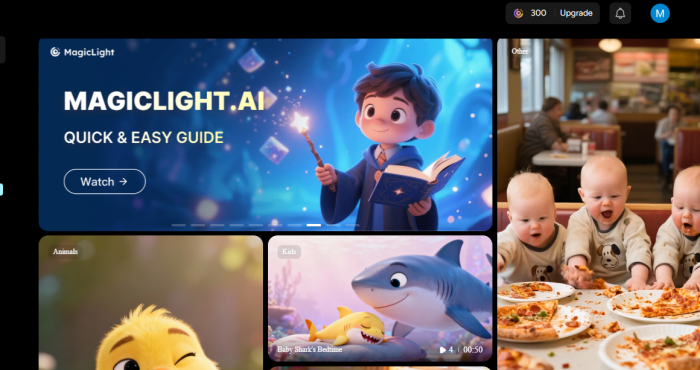
About MagicLight AI
MagicLight AI is a web-based AI story video generator built specifically for long-form, narrative-driven videos (up to around 30 minutes per story).
It handles script generation, storyboard creation, image generation, and final video synthesis in one workflow, with its own proprietary models for style and character consistency.
Key capabilities:
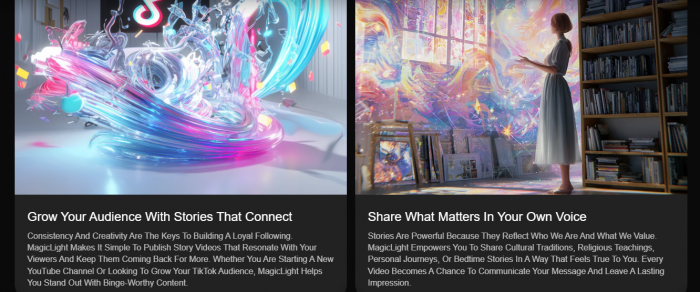
- AI script generation from a short idea or prompt
- Automatic storyboard and scene breakdown
- Image generation with 20+ artistic styles and style consistency across shots
- Character, scene, and motion consistency for long videos (up to ~30 minutes)
- Educational, kids, spiritual, historical, science, and social content use cases
- Web platform plus a companion mobile app for long video creation
Use cases mentioned by the brand:
- Kids’ stories and bedtime tales
- Spiritual and religious storytelling
- Historical explainers and science explainers
- YouTube, TikTok, Instagram storytelling, and educational content channels
- Course creators and teachers who want animated lessons
You can start with a free tier that lets you test image/video generations before upgrading to paid plans.
Step‑by‑Step Guide: How To Use?
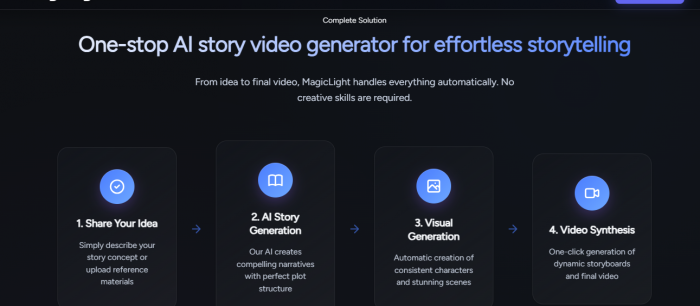
1. Sign Up and Choose a Plan
- Go to the official site
magiclight.aiand sign up with email or social login. - Start on the Free tier (web or app), which typically gives you a limited credit allocation to test short videos and images.
- If you plan longer videos, consider upgrading to a Standard/Plus/Pro plan later (details below).
2. Share Your Idea
- Click “Create story” or similar in the dashboard.
Enter a short brief: for example, “10-minute kids' story about a kind dragon who learns to share” or “3-minute explainer about black holes for teenagers.”
Optionally upload reference images or materials if you want specific characters or visual references.
3. Generate Script / Story
- Use the built‑in AI Story Generation to turn your idea into a structured script with a beginning, middle, and end.
- Review the generated script and manually edit parts like dialogue, pacing, or educational details if needed.
- Lock the script once you are happy, so the next steps stay coherent.
4. Automatic Storyboard & Visual Style
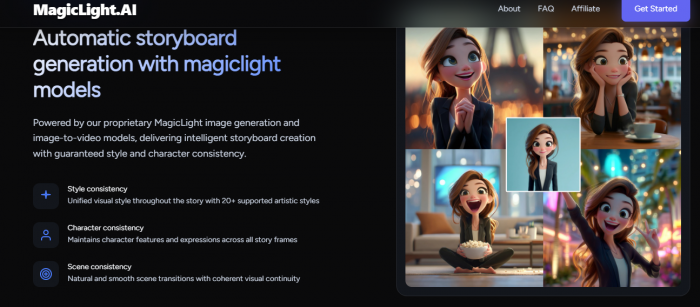
Choose an art style (e.g., cute 2D cartoon, anime-like, semi‑realistic, 3D feel). MagicLight supports 20+ artistic styles and maintains style consistency across all scenes.
Let the system auto‑generate a storyboard: key scenes, camera angles, and framing for each plot beat.
Inspect scene thumbnails; you can usually regenerate or tweak specific frames if something looks off.
5. Character & Scene Consistency
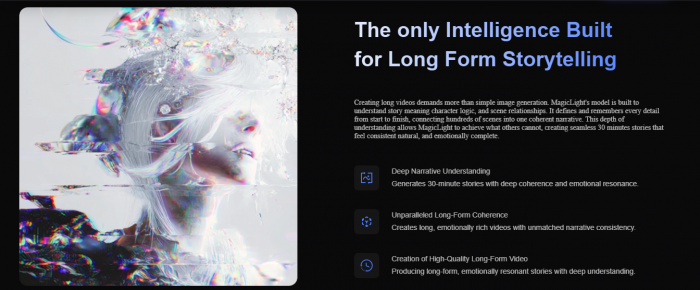
- Define your main characters once: appearance, clothing, age, etc., or select from presets.
Adjust any inconsistent frames by regenerating specific shots until the look feels stable.
6. Video Synthesis & Voice

- Choose voice options (AI narrator or voiceover, where supported in your plan) and set language and tone.
- Hit Generate video. The engine stitches scenes into a full video with transitions and timing.
Rendering time will depend on video length and your plan; higher tiers usually get faster rendering.
7. Review, Edit, and Export
- Watch the full video and mark spots where timing, scenes, or text feel off.
- Make light edits (e.g., regenerate specific scenes, change captions, adjust pacing where supported).
- Export the final video in your chosen resolution and upload to YouTube, TikTok, Instagram, LMS, or other platforms.
Performance: How Well Does it Work?
Coherence, Quality & Results
Its standout strength is long-form coherence: it is specifically optimized to connect hundreds of scenes into a single, emotionally consistent story of up to 30 minutes. Its proprietary models track narrative structure, character logic, and scene relationships, which gives it an edge over many short‑form AI video tools.
Users and reviewers frequently praise:
- Strong character consistency once characters are set
- Visually appealing styles across scenes
- The ability to go beyond 60‑second clips into real episodes or lessons
- However, some users still bump into technical limitations, especially with very complex prompts or extremely specific visual expectations, leading to occasional misaligned scenes that need regeneration.
Reliability, Support & Bugs
It is actively updated, and some users praise how quickly the team ships improvements based on feedback. At the same time, its Trustpilot score of around 2/5 with ~30 reviews shows a real mix of experiences, with complaints often centered on payment/credits confusion, limitations on upgrades, or unmet expectations around output quality for certain use cases.
If you rely on it for business content, it is wise to test thoroughly on the free tier, understand the credit system, and monitor any plan/upgrade limitations documented in their pricing and payment support pages.
Product Pricing
Pricing can vary slightly by source and over time, but multiple watchers and SaaS directories outline a similar structure for the core web product. Always verify on the official pricing page before buying.
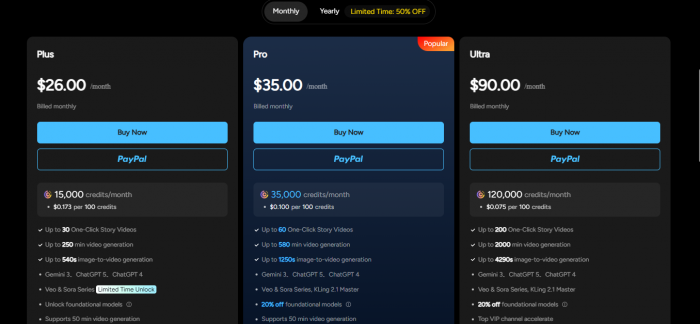
Some blogs also mention “unlimited” style usage or studio‑oriented tiers, but credit‑based limits still typically apply; you pay for capacity, not literal infinity.
Reviews: Positive and Negative Experiences
Positive Experiences
Across Trustpilot, app store comments, and tool directories, positive users tend to mention:
- High visual quality for images and videos, especially in story-driven use cases; many note that they rarely need to regenerate scenes once they learn how to prompt well.

- Responsive development team, with some users reporting that feature suggestions were implemented within weeks, showing that the roadmap is heavily influenced by community feedback.
- Good mobile performance, with some Play Store reviewers recommending it for creating inspiring, expressive videos from a phone.

Negative Experiences
On the other side, several users highlight concerns you should be aware of:
- Low overall TrustScore (≈2/5) on Trustpilot, indicating a meaningful chunk of users feel disappointed or frustrated.

- Complaints about limitations and credit systems, including confusion around website plan upgrades and needing to buy extra credits to continue projects.
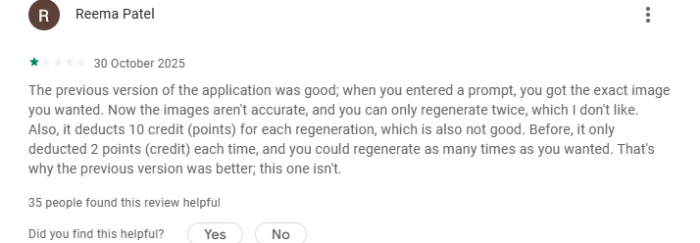
- Technical limitations on very ambitious projects, such as highly complex narratives or detailed stylistic control, lead some Reddit users to feel “blocked” by what the system can handle today.
- Occasional mismatch between marketing promises and user expectations about flawless, studio‑level results without any manual tweaking.
- In simple terms: when it works for your use case, it feels like magic; when your expectations exceed its current technical limits, you may get frustrated.
Alternatives to MagicLight AI
If you like the idea of AI video but want options, here are some notable alternatives mentioned in AI video roundups and comparison pages.
| Tool | Best For | Strength vs MagicLight | Typical Use Cases |
|---|---|---|---|
| Sora (OpenAI / partners) | High-end generative video demos | Very advanced visuals, but not focused solely on long narrative episodes today | Concept videos, cinematic clips |
| Pictory | Turning long text into short marketing clips | Great at repurposing blogs/webinars; less focused on story-style character narratives | Social snippets, promos |
| Runway ML | Creative video editing & gen | Strong editing & effects, but story structure is manual | Music videos, edits, VFX |
| LTX Studio | Scripted AI video production | Strong controls for shot planning and cinematic sequences | Trailers, scripted episodes |
| Canva / VEED (AI video modules) | Simple, branded social videos | Easier for branding and templates, but weaker at long continuous narratives | Reels, ads, explainers |
| Synthesia | Avatar-based business videos | Excellent talking-head avatars, less for animated narratives | Corporate training, tutorials |
MagicLight’s niche is still long-form, character-based storytelling with automatic narrative coherence rather than short clips or avatar presentations.
Final Verdict & Recommendation
MagicLight AI currently sits in a mixed but cautiously positive zone: the core technology is impressive and evolving fast, but reliability, billing clarity, and consistency are not yet at the “set it and forget it” level.
For solo creators, educators, and small channels who want to quickly turn ideas into good‑looking story videos and are comfortable experimenting, it is genuinely worth trying on the free tier and, if it fits your workflow, on a lower‑to‑mid paid plan. But for users who need stable, production‑grade output, strict cost predictability, and minimal babysitting, the recurring complaints about hidden credit costs, feature limits, and character/coherence issues make it a risky main production tool right now and better treated as a powerful side tool rather than the sole backbone of a business.



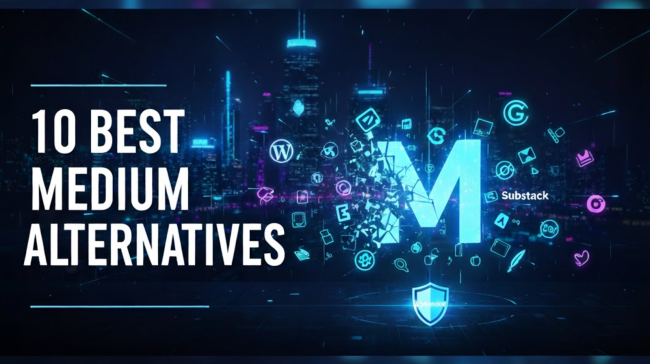
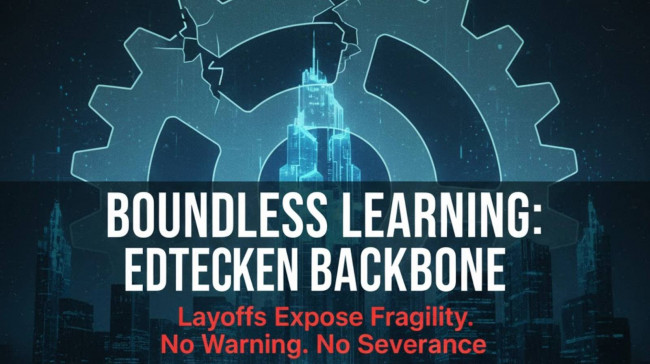
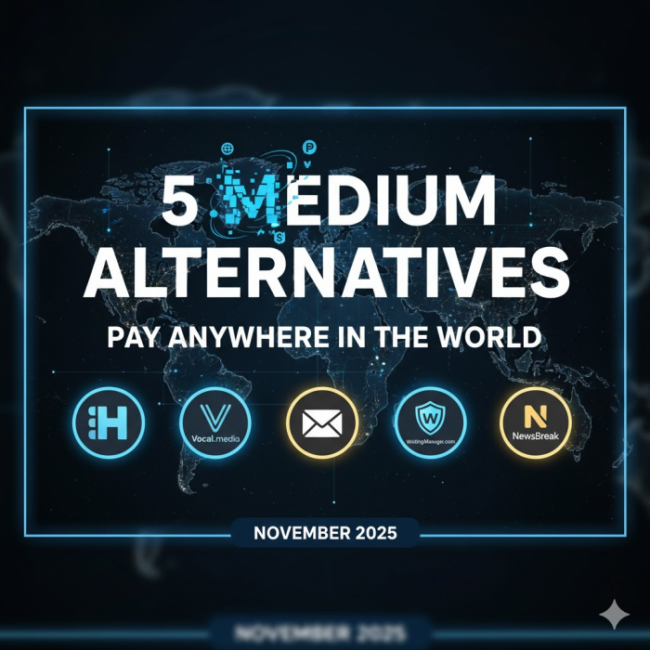


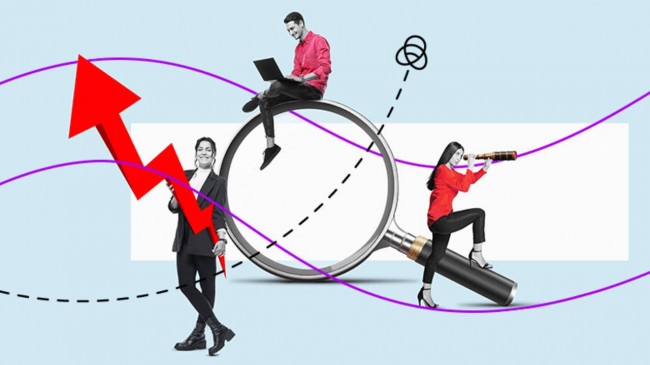


Comments